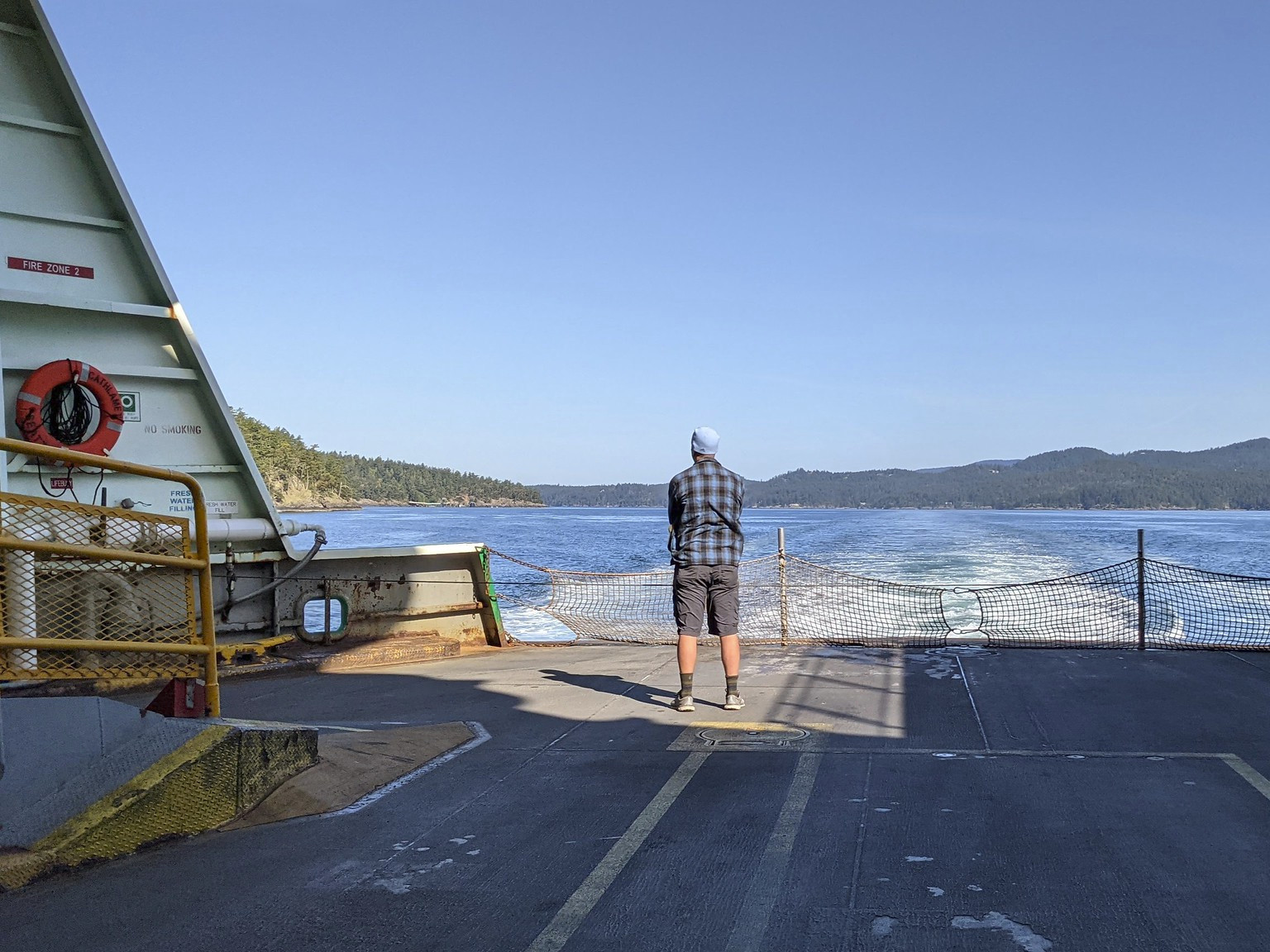Electrifying the ferry system in Washington is one of the plans to reduce the state’s carbon footprint. (Brent Roraback photo)
Washington Governor Jay Inslee signed a bill this week that many consider to be the country’s most ambitious climate policy package. One of the key lawmakers behind the legislation is giving the region’s technology and business sectors some of the credit for the state’s ability to lead the fight against climate change.
“We have an entrepreneurial spirit that enables us to think big,” said Sen. Reuven Carlyle, lead sponsor of the Climate Commitment Act, which limits Washington’s carbon pollution.
Carlyle, a Democrat who represents part of northwest Seattle, is an entrepreneur himself. Previously, he worked in the telecommunications and aerospace sectors and served on boards of directors for wireless networks, consumer electronics, and energy.
Carlyle called some of the state’s largest corporations, including Microsoft, Amazon, and Starbucks, “real thought leaders in moral authority on the climate.” He cited their bold, self-imposed goals to reduce carbon emissions – Microsoft wanted to be carbon negative by 2030, and Amazon founded The Climate Pledge and urged others to join the goal. Carlyle highlighted the importance of both tech companies ‘funds in investing in clean energy innovation, as well as venture capital from Bill Gates’ Breakthrough Energy and others that is flowing into next-generation batteries and cleaner fuels.
“Entrepreneurship and the spirit of public order came together,” said Carlyle of the legislative successes, “and we found our groove.”
 Sen. Reuven Carlyle, main sponsor of a major climate piece of legislation that was incorporated into law this month. Carlyle is pictured on the Senate floor in March. (Washington State Legislature Photo)
Sen. Reuven Carlyle, main sponsor of a major climate piece of legislation that was incorporated into law this month. Carlyle is pictured on the Senate floor in March. (Washington State Legislature Photo)
Microsoft backed the Climate Commitment Act, or Senate Bill 5126, as did BP America and Vulcan, the company founded by the late Microsoft co-founder Paul Allen. Amazon backed House Bill 1091, which creates a clean fuel standard. Supporting the policy is “part of our commitment to sustainability,” said David Zapolsky, Amazon’s general counsel, in a blog post.
But even harder work remains to be done, and there have been a hiccup with some of the climate laws. When Inslee signed the legislation on Monday, he vetoed parts of SB 5126 and HB 1091. He rejected the language that made the implementation of the invoices dependent on a transport package that had yet to be approved.
The governor’s vetoes angered Washington lawmakers, who viewed it as overreach for the executive office, and Carlyle said he had asked Inslee not to take the move. However, the Senator and others are optimistic that the transportation package will be approved in an upcoming special legislature, making the vetoes a moot point in some ways.
You can find more details about the new guidelines and their wider implications here.
Suite of climate policy
Senate Act 5126: Provides a playbook on how to meet the incremental targets set by the state last year to reduce carbon emissions with the ultimate goal of reducing emissions to zero by 2050. The law covers about 75% of Washington’s emissions and includes pollution from power generation, transportation and oil and gas and landfill.
Policy limits the carbon footprint that decreases over time and, with a few exceptions, creates allowances that polluters have to pay for to cover their emissions. The proceeds from the sale of the certificates are spent in communities that are hardest hit by climate change and pollution. Supporters call the approach “Cap and Invest”.
Washington is the second state to cap carbon dioxide emissions after California, and this new legislation is seen as stricter in many ways, including the fact that it doesn’t require re-approval over time. (Check out David Roberts at Volts for an in-depth analysis of climate policy.)
House bill 1091: Established a Clean fuels Program to limit greenhouse gas emissions Transporting fuels and thus reducing their carbon intensity. California, Oregon, and British Columbia have clean fuel standards.
House bill 1050: Stricter regulations on fluorocarbons, a much more powerful heat storage gas than carbon dioxide, which is used for air conditioning and cooling.
Senate Act 5141: The HEAL Act creates an environmental justice council and builds on work to reduce the effects of pollution and other environmental damage on disproportionately affected communities.
Next Steps
The special session to unpack the transport package could take place in September, Inslee told the Seattle Times on Monday. Confident that he and his colleagues can get approval, Carlyle says there is “a great obligation to get a shipping package done quickly”.
The proposed funding package includes an increase in state gas tax, highway improvements, repairs to culverts blocking fish passage, electrification of Puget Sound ferries, bridge construction and other projects.
WA vs. CA.
California launched its carbon cap-and-trade program in 2013. Why did it take so long for a second state to follow suit? Admittedly, Washington has been trying to get on a carbon diet for years, with two efforts led by Inslee and two failed voter initiatives having failed. The most recent election took place in 2018 and was supported by individuals and companies in the technology sector, including Microsoft.
With a massive economy and strong blues, California can be dismissed as an outlier, Carlyle said. Washington has the opportunity to be seen as a role model.
Joe Fitzgibbon MP, who sponsored the two climate bills, agreed. Its legislation along with SB 5126 “provides a roadmap for what robust state-level climate action is like for other jurisdictions in the US and around the world,” Fitzgibbon said in a statement.
